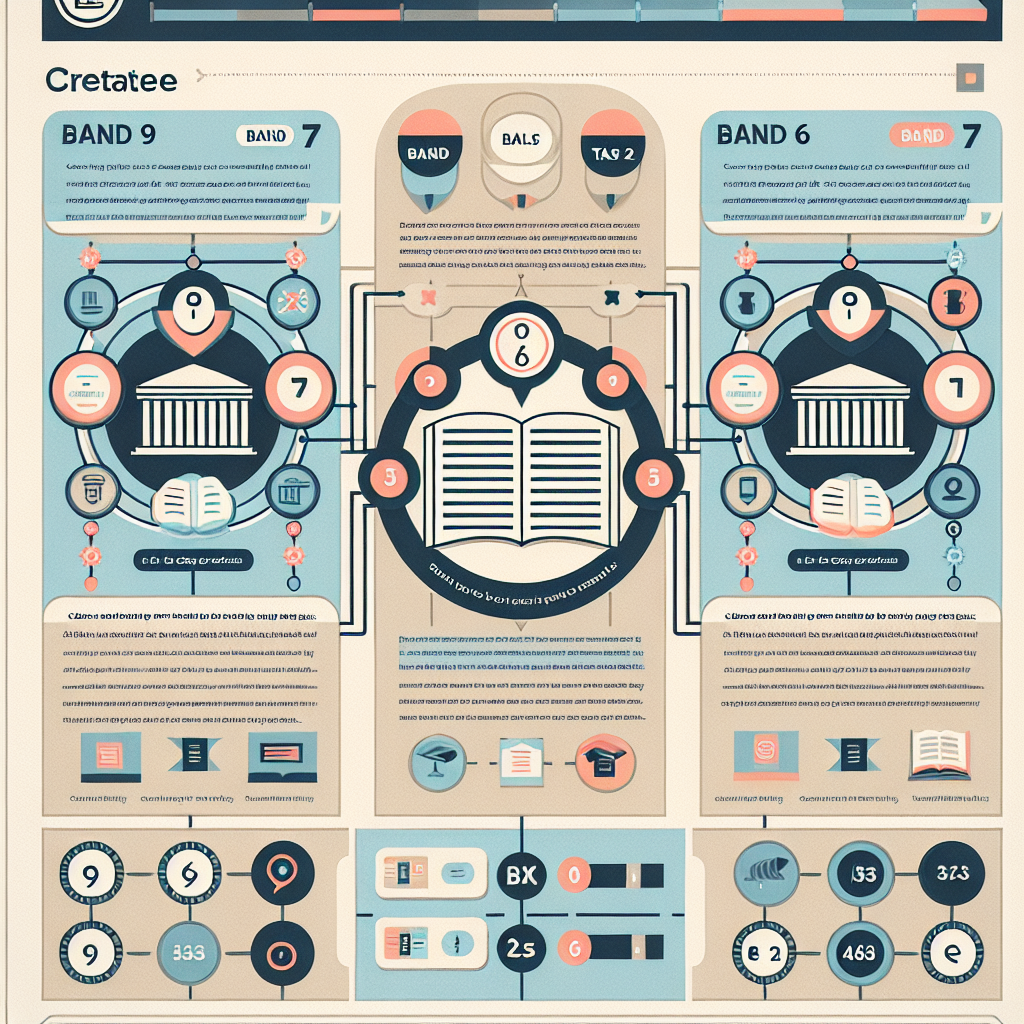Introduction
The role of libraries in modern society is a recurring IELTS Writing Task 2 topic because it sits at the intersection of technology, education, and public policy. Examiners like it: it tests your ability to evaluate change, balance competing priorities, and propose practical solutions. In this guide, you will study three fully developed sample essays (Bands 9, 7, and 5–6), complete with scoring analysis, high-value vocabulary, and sentence structures that examiners reward. You will also learn how to avoid common pitfalls and how to move your writing up by one band level.
Table Of Contents
Verified past exam questions on this topic include:
- Some people think that public libraries are no longer necessary because the Internet can provide the same services. Discuss both views and give your own opinion. (Reported by IELTS Liz and IELTS-Blog)
- Public libraries should only provide books and should not spend their limited resources on computer software, videos or DVDs. To what extent do you agree or disagree? (Cambridge IELTS past paper)
For readers who want a broader policy context, a useful primer is the importance of public libraries in the digital age: importance of public libraries in the digital age.
1. Question & Analysis
Some people think that public libraries are no longer necessary because the Internet can provide the same services. Discuss both views and give your own opinion.
- Question type and requirements:
- Discuss both views + give your opinion.
- You must present both sides with balanced evidence and clearly state your own view. A two-sided discussion with a clear, consistent position throughout scores better than a neutral summary.
- Key terms:
- “No longer necessary” implies redundancy, not just reduced use.
- “Same services” challenges you to compare breadth (books, databases), depth (curation, quality), and social functions (quiet study space, community programmes).
- Common pitfalls:
- Treating libraries only as “book warehouses” and ignoring their social role.
- Vague examples about “technology” without specifics (e.g., databases, digital divide, information literacy).
- Hiding your opinion or stating it only in the conclusion.
- Strategic approach:
- Paragraph 1: Internet advantages (speed, breadth, cost).
- Paragraph 2: Libraries’ unique value (equity, curation, safe space, literacy support).
- Paragraph 3: Evaluation and your stance (synthesis, realistic policy).
- Use concrete examples: rural access, exam prep spaces, trained librarians, subscription databases, community classes.
 IELTS Writing Task 2 analysis of libraries in modern digital society
IELTS Writing Task 2 analysis of libraries in modern digital society
2. Band 8-9 Sample Essay
Band 8–9 writing is precise, well-developed, and cohesive, with a strong personal stance and sophisticated control of grammar and vocabulary.
In the era of ubiquitous Wi‑Fi, it is tempting to argue that public libraries have outlived their purpose. Proponents claim that the Internet delivers faster access to information and a nearly infinite catalogue at negligible cost. While this is partly true, the claim that online platforms fully replicate libraries is overstated. Libraries, which function as civic anchors and equitable gateways to knowledge, remain indispensable.
Supporters of the “Internet replacement” view emphasise speed, convenience, and variety. Search engines return answers within seconds, and e‑books can be downloaded instantaneously. Moreover, digital media provide multimedia learning—podcasts, video lectures, and interactive courses—that a traditional reading room might not offer. Were libraries to pivot solely online, taxpayers might even save on building maintenance and staffing.
Yet this argument neglects three crucial dimensions. First is equity. Not only do libraries equalise access to subscription databases and professional guidance, but they also provide safe study spaces for students who lack quiet environments at home. Second is quality. The Internet is unfiltered; librarians curate credible sources and teach information literacy, a 21st‑century skill that search algorithms cannot impart. Third is community. What many policymakers underestimate is the social infrastructure libraries provide: language classes for migrants, early‑literacy story time, and workshops for job seekers.
In reality, the strongest model is hybrid. Libraries have already integrated e‑books and makerspaces without abandoning their core mission. Acting as both physical refuges and digital portals, they ensure that opportunity is not dictated by postcode or income. Therefore, the Internet complements—but does not replace—the modern library. Public funding should sustain libraries as integrated hubs where technology enhances, rather than erases, their public value.
Band Score Analysis
| Criteria | Band | Justification |
|---|---|---|
| Task Response | 9 | Fully addresses both views with a clear stance from intro to conclusion; ideas extended with specific, relevant examples (databases, study spaces, literacy). |
| Coherence & Cohesion | 9 | Logical progression; clear paragraphing; cohesive devices used naturally; strong topic and concluding sentences that synthesize. |
| Lexical Resource | 9 | Wide range with precise collocation: “civic anchors,” “information literacy,” “subscription databases,” “social infrastructure.” No errors. |
| Grammatical Range & Accuracy | 9 | Varied complex forms: inversion, non-defining relatives, conditionals, participle phrases, clefting. Error-free and natural. |
Why it excels:
- Clear thesis: Internet complements but does not replace libraries.
- Balanced development of both views with concrete details.
- High-level vocabulary used naturally in context.
- Varied sentence structures enhance emphasis and nuance.
- Strong synthesis in the final paragraph proposes a policy direction.
- Coherence maintained through clear signposting and parallelism.
To explore the digital shift discussed above, see a focused overview of the impact of e-books on traditional libraries: the impact of e-books on traditional libraries.
3. Band 6.5-7 Sample Essay
Band 6.5–7 writing is generally clear and relevant, with a consistent position and some complexity, though development may be uneven and wording occasionally imprecise.
Nowadays many people rely on the Internet for learning, so some argue that public libraries are not necessary anymore. On the other hand, many citizens and teachers still support libraries. In my view, libraries continue to be important, especially for people who cannot easily access reliable information or a good study environment.
It is true that online resources are very fast and convenient. Students can search for articles in seconds and download e‑books to their phones. There are also video courses and educational apps. Because of this convenience, some taxpayers think that maintaining library buildings is a waste of money. They prefer to invest in better Internet infrastructure instead.
However, libraries provide unique benefits. Firstly, they offer free access to high‑quality materials, including journals and databases that are too expensive for individuals. Librarians also help readers evaluate sources, which is difficult on the open web where misinformation exists. Secondly, libraries are safe and quiet spaces where students can study for exams without distractions. In many Asian cities, homes are small and crowded, so a library seat is extremely valuable. Finally, libraries hold community programmes like reading clubs and career workshops, which the Internet cannot replace.
In conclusion, while the Internet has transformed how we learn, public libraries still play an essential role by ensuring equal access, guiding users, and supporting community learning. Therefore governments should modernise libraries with digital tools rather than close them.
Band Score Analysis
| Criteria | Band | Justification |
|---|---|---|
| Task Response | 7 | Addresses both sides with a clear opinion; examples are relevant but less detailed than Band 9. |
| Coherence & Cohesion | 7 | Logical overall organization; some repetitive linking; good topic sentences; cohesion is adequate. |
| Lexical Resource | 7 | Sufficient range (“misinformation,” “community programmes,” “infrastructure”); minor repetition and some generic phrases. |
| Grammatical Range & Accuracy | 7 | Mix of simple and complex sentences; generally accurate with occasional minor errors; less variety than Band 9. |
Direct comparison with Band 8–9:
- Precision: Band 9 uses “social infrastructure” vs Band 7’s “community programmes.”
- Depth: Band 9 details “subscription databases and professional guidance”; Band 7 says “high‑quality materials” without examples.
- Grammar: Band 9 employs inversion (“Not only do libraries…”); Band 7 uses standard declaratives.
- Stance: Both are clear, but Band 9 synthesizes policy; Band 7 recommends modernization in general terms.
For learners interested in literacy programmes mentioned here, a practical companion is this overview of the role of libraries in promoting literacy: role of libraries in promoting literacy.
 Band score comparison for IELTS Task 2 library essays with highlighted excerpts
Band score comparison for IELTS Task 2 library essays with highlighted excerpts
4. Band 5-6 Sample Essay
Band 5–6 writing communicates a position but with limited development, noticeable errors, and some organizational or lexical weaknesses.
Today many people say Internet can do same things as library, so government should stop paying for them. I partly agree, but I believe libraries still useful for society if they change. In the past, libraries was only for books, but now everything is online and quick to find.
Firstly, online information is huge and cheap. Students watch videos or read articles at home. It save time and money. Also, e‑books are lighter than carrying many textbooks. For this reasons, some citizens think libraries are old‑fashion and not efficient anymore.
However, libraries have some important functions. There are peoples who don’t have good Internet or a quiet place to study. In countries where small apartments are normal, a library is helpful for exam preparation. Also librarian can teach how to check fake news, which Internet cannot do by itself. Finally, libraries can organise events for children or jobless adults. These things make community stronger.
In conclusion, Internet is powerful but not perfect. Government should not close libraries, but make them more modern, like adding computers and workshops. This way, both technology and public spaces work together.
Band Score Analysis
| Criteria | Band | Justification |
|---|---|---|
| Task Response | 6 | Position is present with some relevant points; development is uneven and lacks specific examples. |
| Coherence & Cohesion | 6 | Basic organization; some abrupt transitions and repetition; cohesion devices are limited. |
| Lexical Resource | 6 | Adequate range but several inaccuracies and informal choices (“peoples,” “old‑fashion”). |
| Grammatical Range & Accuracy | 5 | Frequent errors in agreement, articles, and verb forms; some faulty sentences but meaning generally clear. |
Learning from Mistakes
| Mistake | Error Type | Correction | Explanation |
|---|---|---|---|
| In the past, libraries was only for books | Subject-verb agreement | In the past, libraries were only for books | Plural subject “libraries” takes “were.” |
| It save time and money | Verb agreement | It saves time and money | Singular “It” requires third-person singular “saves.” |
| old‑fashion | Word form | old‑fashioned | Use the adjective form “old‑fashioned.” |
| There are peoples who don’t have good Internet | Countable noun | There are people who don’t have reliable Internet | “People” is plural; “reliable Internet” is more natural. |
| Also librarian can teach | Article use | Also, librarians can teach | Use plural or add an article: “A librarian can teach” / “Librarians can teach.” |
How to improve from Band 6 to 7:
- Add specific, concrete examples (e.g., named databases, typical library programmes).
- Upgrade vocabulary precision and collocations (“information literacy,” “quiet study environment”).
- Vary sentence structures (use relative clauses, conditionals, and inversion occasionally).
- Proofread for agreement, articles, and word forms.
To understand equity issues behind several points above, a related discussion is the importance of libraries in low-income neighborhoods: importance of libraries in low-income neighborhoods.
5. Essential Vocabulary
| Word/Phrase | Type | Pronunciation | Definition | Example and Collocations |
|---|---|---|---|---|
| information literacy | noun phrase | /ˌɪnfəˈmeɪʃn ˈlɪtərəsi/ | Ability to find, evaluate, and use information effectively | Libraries teach information literacy to combat misinformation. |
| digital divide | noun phrase | /ˈdɪdʒɪtl dɪˈvaɪd/ | Gap between those with and without digital access | Bridge the digital divide; address the digital divide. |
| subscription databases | noun phrase | /səbˈskrɪpʃn ˈdeɪtəbeɪsɪz/ | Paid collections of journals and data | Access subscription databases; licensed databases. |
| civic anchor | noun phrase | /ˈsɪvɪk ˈæŋkər/ | Institution that stabilizes community life | Libraries act as civic anchors in urban areas. |
| curated resources | noun phrase | /ˈkjʊəreɪtɪd ˈrɪsɔːrsɪz/ | Selected and organized by experts | Provide curated resources; curated collections. |
| quiet study space | noun phrase | /ˈkwaɪət ˈstʌdi speɪs/ | Peaceful place for learning | Reserve a quiet study space; lack of quiet study space. |
| public funding | noun phrase | /ˈpʌblɪk ˈfʌndɪŋ/ | Government financial support | Allocate public funding; sustain with public funding. |
| social infrastructure | noun phrase | /ˈsəʊʃl ˌɪnfrəˈstrʌktʃər/ | Facilities that support community wellbeing | Invest in social infrastructure; build social infrastructure. |
| to replicate | verb | /ˈreplɪkeɪt/ | To reproduce or copy | Online tools cannot replicate librarians’ guidance. |
| to democratise access | verb phrase | /dɪˈmɒkrətaɪz ˈækses/ | Make access open to all | Libraries democratise access to knowledge. |
| Nevertheless | connector | /ˌnevərðəˈles/ | In spite of that | Nevertheless, equity concerns remain. |
| By contrast | connector | /baɪ ˈkɒntrɑːst/ | In comparison | By contrast, libraries provide curated sources. |
| obsolete | adjective | /ˌɒbsəˈliːt/ | No longer useful | Some argue libraries are obsolete. |
| equitable | adjective | /ˈekwɪtəbl/ | Fair and impartial | Equitable access; equitable provision. |
| complement (not replace) | verb | /ˈkɒmplɪment/ | To add to in a way that improves | The Internet should complement libraries. |
For cultural preservation angles sometimes linked to library missions, you may also consider how heritage institutions support the importance of traditional arts in society: importance of traditional arts in society.
6. High-Scoring Sentence Structures
- Complex subordination
- Formula: Subordinator + dependent clause, main clause.
- Example: While this is partly true, the claim that online platforms fully replicate libraries is overstated.
- Why it scores well: Balances acknowledgement and rebuttal; clear logical contrast.
- Additional examples:
- While e‑books are convenient, they do not guarantee equitable access.
- Although budgets are tight, cutting libraries can be counterproductive.
- Common mistakes: Misplaced commas; using “although” and “but” together.
- Non-defining relative clause
- Formula: Noun, which/who + extra information, main clause.
- Example: Libraries, which function as civic anchors and equitable gateways to knowledge, remain indispensable.
- Why it scores well: Packs precise, high-value information elegantly.
- Additional examples:
- Librarians, who are trained in evaluation, guide users through data.
- Reading rooms, which many students rely on, cannot be virtualised.
- Common mistakes: Omitting commas; using “that” in non-defining clauses.
- Participle phrase
- Formula: Participial phrase + main clause.
- Example: Acting as both physical refuges and digital portals, they ensure that opportunity is not dictated by postcode or income.
- Why it scores well: Concise cause/role description without extra clauses.
- Additional examples:
- Providing curated databases, libraries save users time.
- Bridging the digital divide, public libraries promote equality.
- Common mistakes: Dangling modifiers not clearly referring to the subject.
- Cleft sentence (emphasis)
- Formula: What + clause + be + focus.
- Example: What many policymakers underestimate is the social infrastructure libraries provide.
- Why it scores well: Directly highlights the main point for emphasis.
- Additional examples:
- What students need most is a quiet, reliable place to study.
- What the Internet lacks is human guidance and accountability.
- Common mistakes: Using informal “the thing is” in formal essays.
- Advanced conditional
- Formula: Were + subject + to + base verb, main clause.
- Example: Were libraries to pivot solely online, taxpayers might even save on building maintenance.
- Why it scores well: Shows grammatical flexibility and hypothetical reasoning.
- Additional examples:
- Were funding to be cut, disadvantaged students would suffer most.
- Had policymakers consulted users, the policy might have succeeded.
- Common mistakes: Mixing tenses incorrectly; using “would” in the if-clause.
- Inversion for emphasis
- Formula: Negative adverbial + auxiliary + subject + verb.
- Example: Not only do libraries equalise access to subscription databases and professional guidance, but they also provide safe study spaces.
- Why it scores well: Adds formal emphasis and variety.
- Additional examples:
- Rarely is equity discussed in budget meetings.
- Under no circumstances should libraries ignore accessibility.
- Common mistakes: Forgetting subject-auxiliary inversion after the adverbial.
 High-scoring grammar patterns illustrated with library-themed examples
High-scoring grammar patterns illustrated with library-themed examples
7. Self-Assessment Checklist
- Before writing:
- Identify question type (e.g., discuss both views + opinion).
- Brainstorm 2–3 arguments per side with concrete examples.
- Decide your stance and policy recommendation.
- While writing:
- Keep topic sentences focused on the task.
- Use one high-scoring structure per paragraph naturally.
- Support claims with specific, real-world examples.
- After writing:
- Check for a clear position in both introduction and conclusion.
- Remove vague words; tighten collocations.
- Proofread for agreement, articles, and punctuation.
- Time management tips:
- 5 minutes plan; 30 minutes write; 5 minutes review.
- If stuck, write the body first, then the introduction.
For those exploring how library strategy connects to community outcomes beyond literacy, this discussion of the importance of libraries in low-income neighborhoods can offer context: importance of libraries in low-income neighborhoods.
Conclusion
The role of libraries in modern society is a high-frequency IELTS Writing Task 2 topic because it forces you to weigh technology against equity, quality, and community needs. You’ve seen how a Band 9 essay synthesizes both views, uses precise vocabulary, and deploys high-scoring structures to argue that the Internet should complement, not replace, libraries. Your path to improvement is clear: plan with specifics, vary grammar purposefully, and revise for accuracy. With steady practice, most learners can move up one band in 6–8 weeks.
As you continue, compare today’s topic with related areas such as how e‑books reshape library services: the impact of e-books on traditional libraries, and how libraries foster reading skills: role of libraries in promoting literacy. Practice by writing your own essay on this prompt and share it for peer feedback. Use the checklists above each time you write, and focus on one new structure per essay. Steady, targeted refinement builds the confidence and control examiners reward.


